

How can one think of fashion and not think of this iconic figure? She epitomizes fashion and sophistication with the mere mention of her name. She's the only one I know that wears mink eyelashes. Who is she? Call her "Ms. Ross".

Diana Ross born Diane Ernestine Ross, came into this world on March 26, 1944. She grew up in the low-income Brewster-Douglass housing projects.
Mary Wilson and Florence Ballard, already part of a group (The Primettes), invited Diane to sing with them. After local exposure, approached Motown in 1962 and signed with them. They had a couple of albums and singles-all flops. They were nicknamed, The No-Hit Supremes.
This was ironic as they would go on to become the most successful American vocal group of the 1960s, and the second most successful group worldwide, second only to The Beatles

Motown began plans to have Ross start a solo career in 1968. By the summer of 1969, Ross began her first solo recordings. In November of the same year, three years after it was first rumored, Billboard magazine confirmed Ross' exit from the group to begin her solo career.

Ross began her solo sessions with a number of producers, including Bones Howe and Johnny Bristol. Her first track with Bristol, "Someday We'll Be Together", was tagged as her first solo single; it was instead issued as the final Diana Ross & the Supremes release. "Someday We'll Be Together" was the 12th and the final number-one hit for the Supremes and the last American number-one hit of the 1960s. Ross made her final appearance with the Supremes at the Frontier Hotel in Las Vegas on January 14, 1970.

Diana Ross went on to record album afer album turning out #1 hits for three more decades.
In May 1970, Diana Ross was released on Motown. The first single, the gospel-influenced "Reach Out and Touch (Somebody's Hand)", peaked at #20 on the Billboard Hot 100. The album's second single, a cover of Gaye and Terrell's 1967 hit "Ain't No Mountain High Enough", was an international hit, and gave Ross her first #1 pop single as a solo artist. "Ain't No Mountain High Enough" garnered Ross a Grammy nomination for Best Pop Vocal Performance, Female.

In 1971 Motown Records had relocated to Hollywood. Berry Gordy decided it was time the company ventured again into new territory, so he focused much of his attention on developing a motion picture company and making Ross a movie star.
In late 1971, it was announced that Diana Ross was going to play jazz icon Billie Holiday in a Motown-produced biographical film loosely based on Holiday's autobiography, Lady Sings the Blues. From the moment the film was announced, critics ridiculed Ross throughout the media: Ross and Holiday were miles apart from each other in vocal stylings and appearance. Ross soldiered on, immersing herself in Holiday's music and life story. Ross actually knew little about Holiday and wasn't a big fan of jazz in general. Instead of imitating Holiday's voice, Ross focused on Holiday's vocal phrasing.
Opening in October 1972, Lady Sings the Blues was a phenomenal success, and Ross' performance drew universal rave reviews. The movie co-starred Brian's Song star Billy Dee Williams, who played Holiday's lover, Louis McKay. Appearing in his film debut was comedian Richard Pryor.

In 1973, Ross was nominated for both the Golden Globe Award and the Academy Award for "Best Actress". Winning a Golden Globe for Best Newcomer, Ross lost the Best Actress Oscar to her friend Liza Minnelli for her role in Cabaret. The soundtrack album for Lady Sings the Blues went to number-one album on the Billboard 200 for two weeks and reportedly sold 300,000 copies during its first eight days of release.
In 1975, Ross again co-starred with Billy Dee Williams in the Motown film Mahogany. The story of an aspiring fashion designer who becomes a runway model and the toast of the industry, Mahogany was a troubled production from early on. The film's original director, Tony Richardson, was fired during production and Berry Gordy assumed the director's chair himself.

In addition, Gordy and Ross clashed during filming, with Ross leaving the production before shooting was completed, forcing Gordy to use secretary Edna Anderson as a body double for Ross. While a box office hit, the film was not a critical success: Time magazine's review of the film chastised Gordy for "squandering one of America's most natural resources: Diana Ross."


Diana Ross' landmark 1980 album, diana, was her final LP for Motown Records before leaving for RCA the following year.
In 1979, Ross reunited with Nickolas Ashford & Valerie Simpson for the album The Boss, which became Ross' first gold-certified album (Motown sales records before 1977 were not audited by the RIAA, and therefore none of Motown's pre-1977 releases were awarded certifications In 1980, Ross released her first RIAA platinum-certified disc, "diana", produced by Chic's front men Nile Rodgers and Bernard Edwards. The album included two of Ross' most successful and familiar solo hits, her fifth number-one single, "Upside Down", and the Top 5 single "I'm Coming Out". diana was the singer's most successful studio album to date, peaking at number-two on the Billboard 200 chart for three weeks and selling over 6 million copies in the United States alone.
Ross scored a Top 10 hit in late 1980 with the theme song to the 1980 film It's My Turn. The following year, she collaborated with former Commodores singer-songwriter Lionel Richie on the theme song for the film Endless Love. The Academy Award-nominated "Endless Love" single became Ross' final hit on Motown Records, and the Number One Record of the year. Feeling that Motown, and in particular Gordy, were keeping her from freely expressing herself, and not according her financial parity, Ross left Motown and signed a $20 million contract with RCA Records in the US and Canada and Capitol/EMI elsewhere, ending her twenty-year tenure with the label.
The following year, she collaborated with former Commodores singer-songwriter Lionel Richie on the theme song for the film Endless Love. The Academy Award-nominated "Endless Love" single became Ross' final hit on Motown Records, and the Number One Record of the year. Feeling that Motown, and in particular Gordy, were keeping her from freely expressing herself, and not according her financial parity, Ross left Motown and signed a $20 million contract with RCA Records in the US and Canada and Capitol/EMI elsewhere, ending her twenty-year tenure with the label.
The Ross-RCA deal was the most money ever paid to a recording artist. When "Endless Love" hit number-one in 1981, Ross became the first female artist in music history to place six singles at number one on the Billboard Hot 100.

Motown began plans to have Ross start a solo career in 1968. By the summer of 1969, Ross began her first solo recordings. In November of the same year, three years after it was first rumored, Billboard magazine confirmed Ross' exit from the group to begin her solo career.

Ross began her solo sessions with a number of producers, including Bones Howe and Johnny Bristol. Her first track with Bristol, "Someday We'll Be Together", was tagged as her first solo single; it was instead issued as the final Diana Ross & the Supremes release. "Someday We'll Be Together" was the 12th and the final number-one hit for the Supremes and the last American number-one hit of the 1960s. Ross made her final appearance with the Supremes at the Frontier Hotel in Las Vegas on January 14, 1970.

Diana Ross went on to record album afer album turning out #1 hits for three more decades.
In May 1970, Diana Ross was released on Motown. The first single, the gospel-influenced "Reach Out and Touch (Somebody's Hand)", peaked at #20 on the Billboard Hot 100. The album's second single, a cover of Gaye and Terrell's 1967 hit "Ain't No Mountain High Enough", was an international hit, and gave Ross her first #1 pop single as a solo artist. "Ain't No Mountain High Enough" garnered Ross a Grammy nomination for Best Pop Vocal Performance, Female.

In 1971 Motown Records had relocated to Hollywood. Berry Gordy decided it was time the company ventured again into new territory, so he focused much of his attention on developing a motion picture company and making Ross a movie star.
In late 1971, it was announced that Diana Ross was going to play jazz icon Billie Holiday in a Motown-produced biographical film loosely based on Holiday's autobiography, Lady Sings the Blues. From the moment the film was announced, critics ridiculed Ross throughout the media: Ross and Holiday were miles apart from each other in vocal stylings and appearance. Ross soldiered on, immersing herself in Holiday's music and life story. Ross actually knew little about Holiday and wasn't a big fan of jazz in general. Instead of imitating Holiday's voice, Ross focused on Holiday's vocal phrasing.
Opening in October 1972, Lady Sings the Blues was a phenomenal success, and Ross' performance drew universal rave reviews. The movie co-starred Brian's Song star Billy Dee Williams, who played Holiday's lover, Louis McKay. Appearing in his film debut was comedian Richard Pryor.

In 1973, Ross was nominated for both the Golden Globe Award and the Academy Award for "Best Actress". Winning a Golden Globe for Best Newcomer, Ross lost the Best Actress Oscar to her friend Liza Minnelli for her role in Cabaret. The soundtrack album for Lady Sings the Blues went to number-one album on the Billboard 200 for two weeks and reportedly sold 300,000 copies during its first eight days of release.
In 1975, Ross again co-starred with Billy Dee Williams in the Motown film Mahogany. The story of an aspiring fashion designer who becomes a runway model and the toast of the industry, Mahogany was a troubled production from early on. The film's original director, Tony Richardson, was fired during production and Berry Gordy assumed the director's chair himself.

In addition, Gordy and Ross clashed during filming, with Ross leaving the production before shooting was completed, forcing Gordy to use secretary Edna Anderson as a body double for Ross. While a box office hit, the film was not a critical success: Time magazine's review of the film chastised Gordy for "squandering one of America's most natural resources: Diana Ross."


Diana Ross' landmark 1980 album, diana, was her final LP for Motown Records before leaving for RCA the following year.
In 1979, Ross reunited with Nickolas Ashford & Valerie Simpson for the album The Boss, which became Ross' first gold-certified album (Motown sales records before 1977 were not audited by the RIAA, and therefore none of Motown's pre-1977 releases were awarded certifications In 1980, Ross released her first RIAA platinum-certified disc, "diana", produced by Chic's front men Nile Rodgers and Bernard Edwards. The album included two of Ross' most successful and familiar solo hits, her fifth number-one single, "Upside Down", and the Top 5 single "I'm Coming Out". diana was the singer's most successful studio album to date, peaking at number-two on the Billboard 200 chart for three weeks and selling over 6 million copies in the United States alone.
Ross scored a Top 10 hit in late 1980 with the theme song to the 1980 film It's My Turn.
 The following year, she collaborated with former Commodores singer-songwriter Lionel Richie on the theme song for the film Endless Love. The Academy Award-nominated "Endless Love" single became Ross' final hit on Motown Records, and the Number One Record of the year. Feeling that Motown, and in particular Gordy, were keeping her from freely expressing herself, and not according her financial parity, Ross left Motown and signed a $20 million contract with RCA Records in the US and Canada and Capitol/EMI elsewhere, ending her twenty-year tenure with the label.
The following year, she collaborated with former Commodores singer-songwriter Lionel Richie on the theme song for the film Endless Love. The Academy Award-nominated "Endless Love" single became Ross' final hit on Motown Records, and the Number One Record of the year. Feeling that Motown, and in particular Gordy, were keeping her from freely expressing herself, and not according her financial parity, Ross left Motown and signed a $20 million contract with RCA Records in the US and Canada and Capitol/EMI elsewhere, ending her twenty-year tenure with the label.The Ross-RCA deal was the most money ever paid to a recording artist. When "Endless Love" hit number-one in 1981, Ross became the first female artist in music history to place six singles at number one on the Billboard Hot 100.

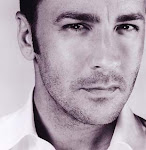

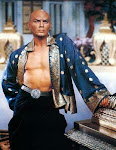
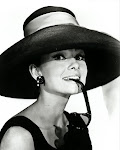

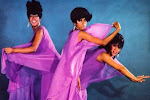


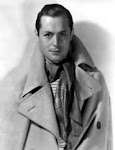
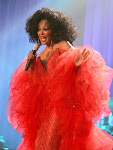
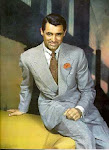
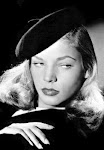



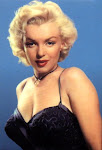
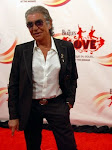



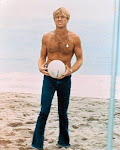

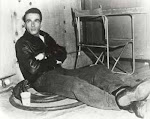
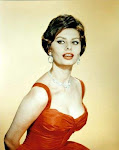



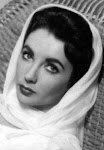




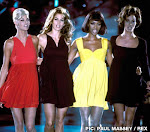

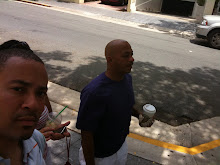
No comments:
Post a Comment